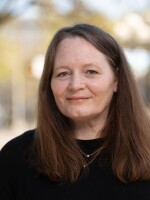Twenty-one communities in Oregon – the most ever – are taking part in the latest arts and economic prosperity study, conducted by Americans for the Arts. The study is conducted every five-to-seven years and measures audience spending and spending by arts and cultural organizations.
In 2017, the last time the study was conducted, it showed that the arts in Eugene were a $62 million industry producing 2,400 jobs.
“Arts are so important to all of our lives and the quality of our lives," said Liora Sponko, Senior Program Manager with the Oregon Arts Commission. "But sometimes people forget how arts and culture are so important to our economies, and driving industries."
During events, dollars flow as people eat out, hire babysitters or even rent a car or hotel room. Capturing that overall picture is the aim of the economic survey.
Rich Hobby, Marketing Director for Eugene’s Hult Center for the Performing Arts, said the ripple effect is evident.
“During the run of Hamilton, we kept getting notes from every local business, within really kind of a half mile of the whole center saying, ‘we have felt the impact of this. We really appreciate when you guys have these types of shows coming through because it's felt here,’” Hobby said.
This will be the first Americans for the Arts economic survey conducted since the COVID-19 pandemic. In addition to being an indicator of how arts are recovering, the survey also hopes to include input from more communities of color.
“Americans for the Arts is committed to addressing equity and inclusion as a critical component of the methodology, organizational participation, and collection of data for AEP6 by centering and representing BIPOC (Black, Indigenous, People of Color) and ALAANA (African, Latinx, Asian, Arab, Native American) identifying communities—a segment of the nonprofit arts and culture sector that has been underrepresented in past studies,” the organization states on its website.
Large venues like the Hult center will remain involved. But efforts are being made to be more inclusive. Hobby said this type of refocusing isn’t unique to Americans for the Arts, but that the entire arts industry has undergone a reckoning.
“Authenticity is the name of the game right now," he said. "And that there's plenty of lip service that can be played in the arts, but it's about what are the actual booking decisions and the operation decisions that are going to change in the coming years.”
Surveys were taken at dozens of events and venues in the past year, including at the Hult Center and at the DisOrient Asian American Film Festival, where executive director Pamela Quan said volunteers urged the audience to weigh in.
“It helps, all of us potentially get more support for arts in our community,” Quan told KLCC.
But there is a barrier to accessing the potential of that data: a lack of people power. Quan is also a board member of the Chinese-American Benevolent Association of Eugene, and said it’s always a struggle for the groups to keep up.
“Full time jobs, you know, families, elder care, you know, just all the things that take up any person's life, and we just don't have enough people involved,” she said.
Quan said money and staff could really help. It would allow smaller organizations like hers to hire grant writers, which could result in more funding to hold events.
“We're in a cycle where it's very challenging, but we also feel that especially with the increase in anti-Asian violence, that we need to do something to be more visible," she said. "We feel a responsibility to be a center of community in Lane County."
Talicia Brown-Crowell is the organizer of Eugene’s Black Cultural Festival. She said she, too, constantly weighs how and where to direct her energy, including deciding whether to fill out the survey.
“I just don't exactly know how it will benefit the black community, you know, black people, children, families, businesses, artists, I just don't quite know. So I haven't really had the time to prioritize that amongst all the things that I need to get done,” Brown-Crowell told KLCC.
Brown-Crowell did end up participating. But she said when it comes to arts and cultural events, Eugene’s Black community isn’t getting what it needs.
“Absolutely not. We're not getting our cultural needs met. And it's a bit of an irony since Black culture is so celebrated in this country, that it could also be so horrifically underfunded is really unfortunate,” she said.
Brown-Crowell also says many grants seem to favor already established groups and organizations, which makes it hard for smaller and emerging artists and venues to get support.
Whether this latest survey can help change that won’t be known until after the data is released in November.



